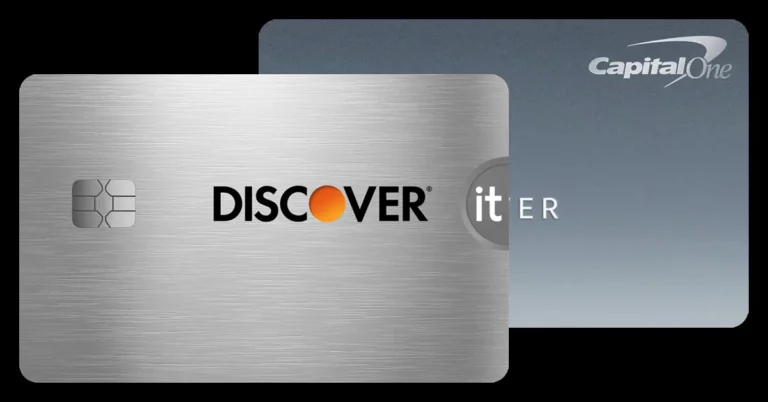The Discover Capital One Merger has captured the attention of the financial world. As two of the most prominent players in the credit card industry, this partnership could reshape the landscape of consumer finance. If you’re a cardholder, it’s worth understanding how this merger might impact your credit card rewards, interest rates, fees, and overall financial strategy.
Why a Discover and Capital One Merger Matters
Mergers in the financial sector are not uncommon, but when two giants like Discover and Capital One consider joining forces, it’s a significant event. Both companies have established themselves as major players in the U.S. credit card market, with millions of active cardholders and extensive portfolios. The merger could create a powerhouse with unmatched financial strength, broader credit offerings, and enhanced rewards programs.
Potential Benefits for Cardholders
Now that the Discover Capital One Merger is inked, cardholders might see several benefits:
- Enhanced Reward Structures – Both Discover and Capital One are known for competitive rewards. Discover’s cash-back model and Capital One’s travel-centric rewards could be combined to offer even more attractive programs, potentially creating some of the most lucrative reward structures in the industry. For example, cardholders might see the introduction of cards that offer both cash back on everyday purchases and elevated points for travel and dining – a rare combination in the current market.
- Broader Acceptance and Perks – Discover has historically struggled with acceptance in some international markets, while Capital One’s cards are widely accepted worldwide. A merger could eliminate this gap, making Discover’s perks more globally accessible. This could be a game-changer for frequent travelers who want the best of both worlds – robust cash-back options and broad global acceptance.
- Improved Technology and Security – Both companies invest heavily in digital security and mobile technology. A merger could lead to even more robust fraud protection, better mobile apps, seamless digital wallets, and innovative financial technology solutions. For instance, they could combine their strengths to offer cutting-edge features like real-time purchase notifications, virtual card numbers for secure online shopping, and advanced AI fraud detection.
- More Competitive Interest Rates and Fees – With greater financial power, the combined entity might have the leverage to offer more competitive interest rates, lower fees, and better introductory offers. This could make their cards particularly appealing to balance transfer seekers or those looking to reduce their interest expenses. Additionally, the merged company might introduce new card tiers, providing more personalized options for different spending habits.
- Comprehensive Financial Services – Capital One’s broad range of banking products, including auto loans and savings accounts, could complement Discover’s strong personal loan and student loan options, providing cardholders with a more comprehensive suite of financial tools. This holistic approach could appeal to customers looking for one-stop financial solutions, potentially offering integrated benefits like better loan rates or cash-back bonuses for linked accounts.
Potential Downsides of the Discover Capital One Merger
While the potential benefits are appealing, it’s essential to consider the possible downsides:
- Loss of Unique Features – Discover’s rotating 5% cash-back categories and Capital One’s unique travel rewards might be streamlined, potentially reducing the appeal for certain cardholders. For example, the popular Discover It Cash Back card, known for its generous quarterly categories, might see those perks diluted or eliminated in favor of more straightforward but less rewarding point structures.
- Higher Annual Fees – Mergers often lead to changes in fee structures, and the combined company might introduce higher annual fees for premium cards to offset merger costs. This could be a significant drawback for budget-conscious consumers who prefer no-fee cards.
- Customer Service Changes – Both companies are known for strong customer service, but merging two large organizations can create growing pains, potentially impacting the quality of support. Cardholders might experience longer wait times, more complex support processes, or a decline in overall service quality during the integration phase.
- Reduced Competition – Fewer competitors in the credit card market could mean less pressure to offer competitive rates and benefits, potentially hurting consumers in the long run. The merger might also lead to less innovation, as fewer companies are pushed to differentiate themselves.
What Current Cardholders Should Do
If you currently hold a Discover or Capital One credit card, here’s what you should consider:
- Review Your Rewards Strategy – Assess whether your current card aligns with your spending habits, especially if the merger changes the rewards structure. If you rely heavily on cash-back categories, for instance, you might need to reconsider your primary card choice.
- Consider a Backup Card – If you rely heavily on your Discover or Capital One card, it might be wise to diversify your wallet in case of significant changes. Cards like the Chase Freedom Flex or American Express Blue Cash Preferred could serve as good alternatives, offering strong cash-back rates.
- Monitor Your Account Closely – Mergers can lead to technical glitches or account changes. Keep an eye on your statements to catch any unexpected fees or changes. This is especially important if you have automatic bill payments linked to your card.
- Evaluate New Offers – The merged entity might roll out new credit card offers. Be ready to switch if a better deal becomes available. You might find that the new company introduces more aggressive sign-up bonuses or special promotions to attract and retain customers.
How This Merger Could Reshape the Credit Card Industry
The Discover-Capital One merger could set a precedent for future consolidation in the credit card industry. It might trigger a wave of similar deals, pushing other major players like American Express, Chase, and Citi to innovate and offer even more competitive products. This consolidation could reshape the market, leading to more innovative rewards structures, enhanced technology integration, and more personalized customer experiences.
The Bottom Line
While the Discover Capital One Merger is apparently a go, understanding its potential impact on your financial strategy is essential. Whether you prioritize cash back, travel rewards, or low-interest rates, staying informed can help you make the most of your credit card benefits in this evolving market.
As the merger progresses, keeping an eye on news updates and cardholder announcements will be critical. Whether this potential partnership turns out to be a game-changer or a minor adjustment in the market, being proactive will ensure you get the most from your credit card rewards.



